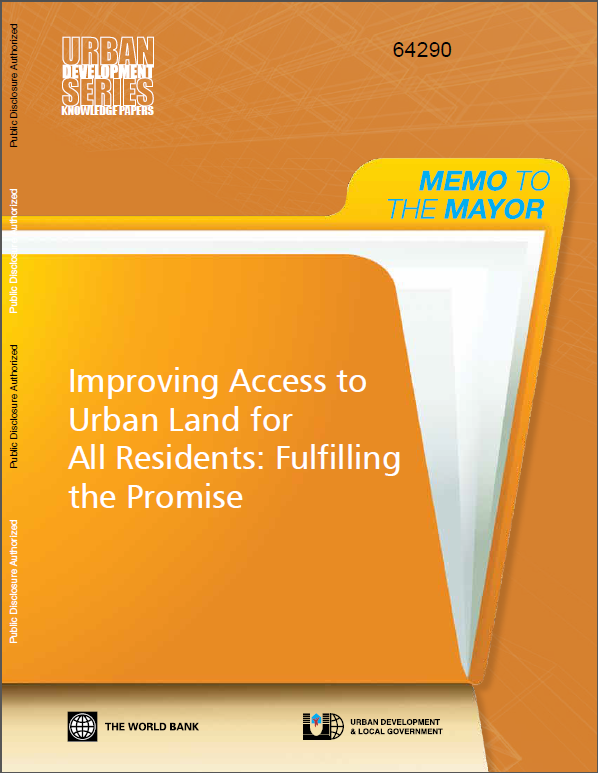Resource information
As the world is urbanizing, many cities are grappling with a population that is growing rapidly, thereby increasing demand for land and housing. This pressure on land and housing markets often is exacerbated by inappropriate or inadequate policies. The result is a supply of well-located land and housing that falls well short of demand and the proliferation of poorly serviced informal settlements, many of which are located far from jobs, city services and amenities. This paper discusses the major policy levers local leaders may have at their disposal to improve access to land and housing and thereby change the landscape of cities for the better. It discusses common obstaclesâ€â€administrative, political, and financialâ€â€and options for overcoming them. In particular, the report: (1) takes a fresh look at some traditional mechanisms such as land regulation, property taxation, and public-private partnerships, (2) reintroduces some innovative land toolsâ€â€community land trusts, guided development, transfer of development rights, land pooling/readjustment, and land sharingthat may have a place in cities' arsenal of responses, and (3) suggests ways to garner the political support that will be needed to move forward with programs of reform. This report is written in the form of a memo to a fictitious Mayor of a fictitious City. He has appointed a Local Land Advisory Committee with members from the public, private and nonprofit sector. The Committee has prepared this memo at the request of the Mayor to help him fulfill his campaign promise to improve access to urban land for all the City's residents.



